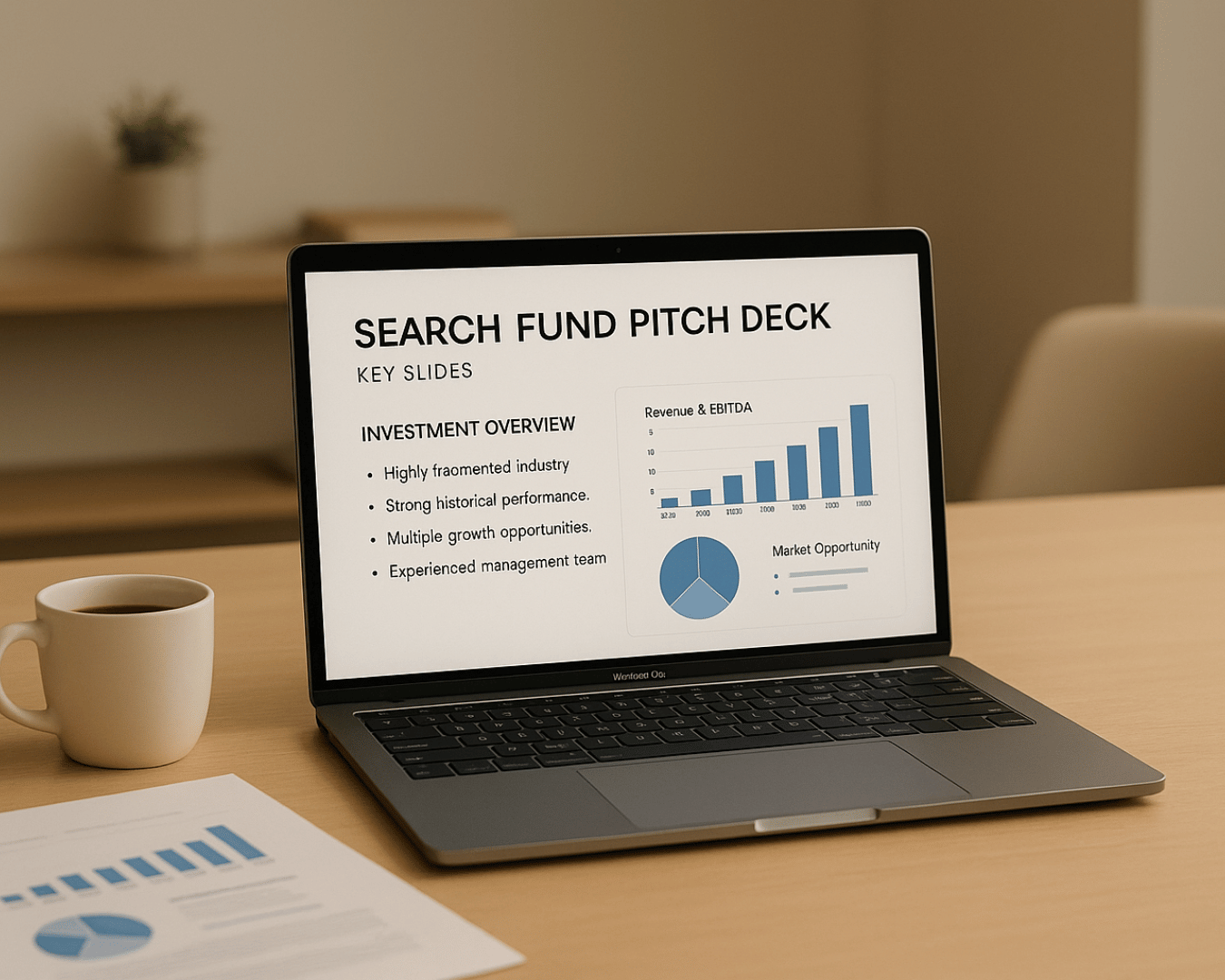Choosing between a business broker and an M&A advisor depends on the size and complexity of your business transaction. Here's the key takeaway:
- Business brokers are ideal for selling smaller businesses (under $5 million), such as restaurants, retail shops, or service providers. They focus on local markets, use straightforward valuation methods, and charge a commission of 8-12% of the sale price.
- M&A advisors are better suited for larger businesses (over $5 million in value) with complex operations. They specialize in detailed financial analysis, national and international buyer networks, and charge a mix of monthly retainers ($15,000-$50,000) and success fees (1-5%).
Quick Comparison
| Factor | Business Brokers | M&A Advisors |
|---|---|---|
| Typical Deal Size | $100,000 - $5 million | $5 million - $500+ million |
| Buyer Type | Local buyers, small investors | Private equity, corporations |
| Fees | 8-12% commission | Retainers + 1-5% success fees |
| Timeline | 3-6 months | 9-18 months |
| Focus | Local markets | National/international markets |
| Valuation | Simple methods (multiples) | Advanced models (DCF, etc.) |
If your business is small and straightforward, a broker will suffice. For larger, more intricate deals, an M&A advisor is the way to go. Platforms like Clearly Acquired now combine the strengths of both, offering tools to simplify transactions for businesses of all sizes.
What Business Brokers Do: Role, Skills, and Deal Types
Business Broker Job Description
Business brokers specialize in connecting small business sellers with qualified buyers in their local or regional markets. Think of them as the business world's equivalent of real estate agents, but instead of homes, they help sell businesses like restaurants, retail shops, auto repair centers, and small service companies.
Their daily tasks include listing businesses for sale, creating marketing materials, and networking with potential buyers. They often collaborate with local banks, attorneys, and accountants, relying on these relationships for client referrals. A big part of their job is screening potential buyers to ensure they have both the financial resources and genuine interest to follow through on a purchase.
Most of the transactions they handle are relatively straightforward. These deals typically involve transferring ownership of well-established local businesses that already have steady cash flow and loyal customer bases. This focus on simpler, smaller-scale deals highlights the specific expertise business brokers bring to the table.
Core Skills and Services
Business brokers are experts in marketing small businesses to local buyers. They create appealing listings and use online platforms to attract interest. Unlike the complex marketing strategies seen in larger mergers and acquisitions (M&A), their methods are often more direct and tailored to smaller-scale transactions.
One of their key skills is accurate business valuation, though their approach is often simpler than what M&A advisors use. Instead of employing intricate models like discounted cash flow, they rely on industry-standard multiples or asset-based methods. For example, a broker might value a local restaurant at 2.5 times its annual cash flow, reflecting typical market benchmarks.
Another critical service they provide is transaction support. This includes negotiating prices, coordinating due diligence, and working with attorneys to finalize the sale. However, they rarely deal with complex arrangements like earnouts, seller financing, or multi-party deals.
Screening buyers is also a major part of their role. Business brokers carefully evaluate potential buyers to ensure they have the financial means and realistic expectations to complete a deal. This process helps avoid wasted time and increases the likelihood of successful transactions.
Deal Size and Payment Structure
Business brokers typically focus on deals under $5 million, with most transactions falling between $100,000 and $2 million. These deals often involve businesses like local restaurants, small retail stores, hair salons, auto repair shops, or single-location franchises.
Their compensation is commission-based, usually ranging from 8% to 12% of the final sale price. The percentage is higher than what M&A advisors charge because the deals are smaller in dollar value. For instance, on a $500,000 sale, the broker might earn a commission calculated on a sliding scale.
Many brokers use a sliding scale fee structure, where the commission rate decreases as the deal size increases. For example, they might charge 12% on the first $500,000, 10% on the next $500,000, and 8% on amounts exceeding $1 million. This structure reflects the additional effort smaller deals require relative to their value.
Most business brokers operate on a no upfront fee basis, meaning they only get paid once the deal closes. This aligns their interests with the seller's goal of completing a successful sale. Some brokers, however, charge modest upfront fees, but their primary earnings still come from closing transactions. This payment model underscores the broker's commitment to seeing deals through to completion.
What M&A Advisors Do: Role, Skills, and Deal Types
M&A Advisor Job Description
M&A advisors handle large, intricate transactions for established companies and institutional investors. Their work often involves private equity firms and institutional buyers across both national and international markets. They craft detailed transaction strategies, conduct thorough market analyses, and prepare comprehensive financial presentations aimed at potential acquirers. Typically, they work with companies generating annual revenues of over $10 million, often managing deals that can reshape entire industries.
Unlike business brokers, who usually focus on local markets, M&A advisors operate within extensive networks of institutional buyers. Their connections include private equity groups, corporate acquirers, and investment funds. This role requires regular interaction with high-level executives, investment committees, and board members, demanding a strong grasp of corporate finance and strategic planning.
Because their deals are more complex, M&A advisors manage fewer transactions at a time compared to business brokers. However, each deal requires significantly more time, expertise, and strategic planning, reflecting the high level of service they provide.
Core Skills and Services
M&A advisors bring advanced expertise to the table, offering services like financial modeling, strategic positioning, and managing detailed due diligence. They perform rigorous valuation analyses, including discounted cash flow models, comparable company assessments, and precedent transaction studies - far more sophisticated than the simpler valuation methods often used by business brokers.
Their role in due diligence is critical for complex transactions. M&A advisors oversee extensive processes involving multiple specialists who examine areas such as regulatory compliance, technology systems, and operational risks. They set up virtual data rooms, organize site visits, and coordinate management presentations for potential buyers.
One of their standout skills is structuring complex deals. Whether it’s designing earnouts, rollover equity, or management incentives, they tailor deal structures to address tax implications, risk distribution, and governance after the transaction is completed.
M&A advisors also excel in auction management, running competitive bidding processes that might involve 50 or more potential buyers. They handle confidentiality agreements, multiple bidding rounds, and final negotiations to secure the best possible outcome for their clients.
Deal Size and Payment Structure
M&A advisors typically focus on transactions valued at $5 million or more, with many working on deals in the $25 million to $500 million range. These transactions often involve businesses with complex operations, multiple locations, or significant intellectual property, requiring a highly analytical and strategic approach.
Their payment structure reflects the scale and complexity of their work. Most M&A advisors charge monthly retainer fees of $15,000 to $50,000 during the preparation and marketing phases of a transaction. These retainers cover the substantial upfront effort required to position a company for sale.
In addition to retainers, advisors earn success fees ranging from 1% to 5% of the transaction value. The percentage typically decreases as the deal size grows, aligning compensation with the effort and resources involved in larger transactions.
The timeline for M&A deals is also longer compared to business broker transactions. Engagements often span 9 to 18 months, reflecting the time needed to prepare larger companies for sale, reach out to qualified buyers, and negotiate complex terms.
Beyond transaction execution, many M&A advisors offer additional services, such as strategic planning, capital raising, and post-transaction integration support. These services, often billed separately, highlight the ongoing advisory relationship that many clients develop with their M&A advisors over time.
What Is The Difference Between A Business Broker And An M&A Advisor
Business Brokers vs. M&A Advisors: Side-by-Side Comparison
Let’s break down the key differences between business brokers and M&A advisors to help you make a more informed choice. While both assist in facilitating transactions, they differ significantly in deal size, complexity, and the way they approach their services.
One major difference lies in geographic reach. Business brokers usually focus on local or regional markets, using their knowledge of the local business environment. On the other hand, M&A advisors extend their reach nationally or even internationally, seeking the best opportunities for their clients, no matter where they are.
Another distinction is the timeline for closing deals. Business brokers typically complete transactions within 3–6 months, making them a faster option for sellers looking for a quick exit. In contrast, M&A advisors often need 9–18 months due to the more complex nature of their deals, which involve extensive preparation and outreach efforts.
Here’s a quick reference chart to highlight these differences:
Comparison Chart: Business Brokers vs. M&A Advisors
| Factor | Business Brokers | M&A Advisors |
|---|---|---|
| Typical Deal Size | $100,000 - $5 million | $5 million - $500+ million |
| Annual Revenue Focus | Under $10 million | Over $10 million |
| Transaction Timeline | 3-6 months | 9-18 months |
| Upfront Fees | Minimal or none | $15,000 - $50,000 monthly retainers |
| Success Fee Range | 6% - 12% of sale price | 1% - 5% of transaction value |
| Primary Buyers | Individual entrepreneurs, small investors | Private equity firms, corporate acquirers |
| Geographic Focus | Local and regional markets | National and international |
| Valuation Methods | Market comparables, rule of thumb | DCF models, comprehensive analyses |
| Due Diligence | Basic financial review | Extensive multi-specialist process |
| Deal Structure | Straightforward asset/stock sales | Complex earnouts, rollover equity |
| Marketing Approach | Business listing platforms, local networks | Targeted institutional outreach |
| Client Interaction | Direct owner communication | Board-level and executive engagement |
| Industry Specialization | Generalist approach | Often sector-specific expertise |
| Post-Sale Support | Limited closing assistance | Integration and strategic planning |
As shown, compensation structures and buyer networks are key areas where these professionals differ. Business brokers earn success fees based on the sale price, while M&A advisors charge substantial monthly retainers in addition to lower percentage success fees. This reflects the complexity and scale of the transactions they handle.
Another important difference is the buyer network. Brokers primarily deal with individual buyers and small investors, while M&A advisors work with private equity firms and corporate acquirers. This distinction affects how each professional markets the business and negotiates deals. Brokers rely on local networks and listing platforms, while advisors use targeted outreach to institutional buyers.
The level of financial analysis also varies. Business brokers focus on cash flow and simple profitability metrics that resonate with individual buyers. Meanwhile, M&A advisors prepare detailed financial models, market analyses, and strategic documents tailored to meet the expectations of sophisticated institutional investors.
sbb-itb-a3ef7c1
How to Choose Between a Business Broker and M&A Advisor
Picking the right professional can save you both time and money. Your choice depends on understanding your unique situation and aligning it with the expertise of the professional who can best meet your needs.
Deal Size and Complexity
If your business is valued under $5 million, a broker is often the better choice. Brokers specialize in straightforward transactions and focus on quickly connecting sellers with qualified buyers. For instance, if you’re selling a single-location restaurant, retail shop, or service business with annual revenues under $10 million, a broker’s streamlined approach is typically more effective.
However, businesses with more complex structures - such as diverse revenue streams, detailed contracts, or regulatory hurdles - require deeper due diligence. For example, a manufacturing company with environmental compliance issues, licensing agreements, or union contracts would benefit from the comprehensive preparation and expertise that M&A advisors provide.
The valuation method also plays a role. If your business can be valued using simple earnings multiples, a broker is sufficient. But if you need more advanced financial modeling - like discounted cash flow analysis, synergy evaluations, or strategic premium calculations - an advisor’s expertise is essential.
Your timeline matters, too. If you’re aiming to close a deal within six months due to personal or market-driven reasons, a broker’s faster process might be more suitable. Advisors, on the other hand, often require more time to navigate complex deals.
Finally, consider your market and local dynamics to refine your decision further.
Industry and Location Focus
Your business’s industry and location can significantly influence the right choice. Local service businesses - like HVAC companies, dental practices, or accounting firms - often benefit from working with brokers who understand regional market trends. These brokers maintain relationships with local buyers and have insight into area-specific factors like competition, demographics, and economic conditions.
For larger businesses, such as multi-location operations or franchises, an M&A advisor’s broader perspective can be invaluable. Advisors leverage national networks to find buyers who are experienced in scaling operations across multiple markets. For example, a regional chain with locations in several states would need an advisor capable of reaching corporate acquirers or private equity firms interested in platform investments.
Industry specialization is critical for businesses in highly regulated or technical sectors. Healthcare practices, technology firms, or manufacturing companies with specialized equipment often require advisors who are familiar with industry-specific valuation methods, regulatory requirements, and buyer expectations.
If your sale is tied to retirement or a lifestyle change, a local broker may provide sufficient reach. However, if your business has national growth potential or the sale is part of a strategic repositioning, an advisor’s broader network can help generate more competitive offers.
Level of Support Needed
The level of guidance you require is another key factor to consider. First-time sellers, or those unfamiliar with business transactions, often prefer a broker’s hands-on approach. Brokers tend to provide frequent updates and straightforward explanations, making the process easier to navigate.
Experienced business owners who are comfortable with financial statements, legal documents, and negotiations might lean toward working with M&A advisors. Advisors often assume their clients have a solid understanding of business transactions and focus on strategic, high-level discussions rather than step-by-step guidance.
Post-sale support is another consideration. If you plan to fully step away after the sale, a broker’s basic transaction facilitation is usually enough. But if you’re exploring earnout agreements, consulting roles, or retaining partial equity, an advisor’s ongoing strategic support can be invaluable.
Confidentiality is also important. Brokers often list businesses on public platforms, which works well for businesses where a change in ownership won’t disrupt operations. However, if public knowledge of the sale could harm employee retention, customer relationships, or competitive positioning, advisors’ more discreet, targeted outreach may be a better fit.
Finally, think about your negotiation preferences. Brokers typically handle most buyer interactions, shielding owners from the day-to-day back-and-forth. Advisors, on the other hand, involve owners more directly in strategic discussions while managing tactical negotiations. Choose the professional whose communication and negotiation style aligns with your experience and comfort level.
Clearly Acquired: Combining Business Brokerage and M&A Advisory Services
Clearly Acquired bridges the gap between business brokerage and M&A advisory services by combining their strengths into one seamless, AI-powered platform. Designed for Main Street and lower mid-market businesses, this platform offers tools and services that were once divided between different professionals, simplifying the deal-making process.
All-in-One Platform for Main Street and Lower Mid-Market Deals
Clearly Acquired serves as both a business and loan brokerage platform, customized for Main Street and lower mid-market transactions. By leveraging artificial intelligence, it streamlines critical processes like deal sourcing, valuation, and financing - tasks that traditionally required separate experts.
The platform provides a robust marketplace with diverse listing options. Its off-market search tools allow buyers to connect with businesses that aren’t actively listed for sale, combining the expansive reach of M&A advisors with the localized expertise of business brokers.
When it comes to financing, the acquisition loan marketplace matches buyers with preferred lenders, while Plaid-integrated financial verification simplifies acquisition pre-qualification. This feature addresses a common challenge in traditional brokerage: limited access to advanced financing solutions that were typically reserved for M&A advisory clients.
The Import Hub ensures users don’t miss out on opportunities by aggregating external deal listings automatically. This eliminates time-consuming manual processes and enhances efficiency, creating a smoother transaction experience for everyone involved.
Benefits for Brokers, Buyers, and Sellers
Clearly Acquired delivers value to all participants in a transaction through its integrated platform:
-
Deal Flow & Marketplace Access
Clearly Acquired connects qualified buyers, investors, and advisors through its verified ecosystem. Users can source or syndicate deal flow via direct listings, private uploads, or off-market searches. Advanced filters, AI-matching, and secure data rooms make discovery and diligence fast, organized, and confidential. -
Buy-Side Advisory & Financing Support
Buyers gain access to verified listings, lender pre-qualification, and real-time debt sizing through integrated SBA and private-credit partners. The platform supports creative capital stacks—including seller notes, earnouts, mezzanine capital, and investor co-funding—while enabling faster closings through automated underwriting and document management. -
Sell-Side Representation & Value Optimization
For business owners preparing to exit, Clearly Acquired provides valuation, marketing, and transaction readiness tools. The AI-driven valuation engine benchmarks companies against industry comps and recent sales, while audit dashboards reveal key value drivers and performance gaps to address before listing. Sellers can showcase opportunities securely to a network of vetted, pre-qualified acquirers. -
M&A Advisory & Lifecycle Management
Whether acting as an independent intermediary, internal M&A team, or operator, users can manage every stage of the deal—valuation, packaging, marketing, diligence, negotiation, and financing—within one centralized environment. Built-in communication, analytics, and workflow automation allow for complete transparency and execution efficiency from first contact to close.
Lenders also benefit from the platform by connecting with borrowers who meet their specific lending criteria, reducing time spent on unsuitable applications and improving the overall efficiency of the financing process.
Complete Transaction Management
Clearly Acquired simplifies every phase of a transaction by integrating hands-on support with advanced tools. Its pipeline and deal flow management features centralize communications among buyers, sellers, and partners, ensuring smoother negotiations and fewer missed details.
The platform’s secure data rooms allow users to share sensitive documents safely, with customizable permission settings to address confidentiality concerns. This feature provides a professional-grade infrastructure for both smaller and larger transactions.
With AI-driven valuation tools, the platform combines multiple valuation factors to offer precise results, bridging the gap between basic broker methods and the more advanced financial modeling used by M&A advisors.
Additional features like due diligence support help users evaluate risks, review documentation, and prepare for deals. Capital stack planning tools assist in creating optimal funding strategies for acquisitions or expansions. These services, which often required hiring multiple professionals, are now available in one streamlined workflow.
To round out its offerings, Clearly Acquired provides educational resources, including acquisition strategy guides and market intelligence reports. These tools help users stay informed about trends in Main Street and lower mid-market M&A, empowering them to make smarter decisions across multiple transactions.
Conclusion
Choosing between a business broker and an M&A advisor ultimately depends on the specifics of your transaction. Business brokers are well-suited for smaller, simpler deals, offering local market knowledge and a hands-on approach. On the other hand, M&A advisors provide in-depth financial analysis and strategic expertise, making them a better fit for larger, more complex transactions.
Key considerations include the size of the deal, its complexity, and the level of support you need. Smaller businesses with straightforward operations often benefit from the competitive pricing and personalized service of business brokers. In contrast, larger companies with diverse revenue streams and intricate ownership structures typically require the advanced tools and expertise that M&A advisors bring to the table.
Interestingly, new platforms are emerging that combine the strengths of both approaches. These integrated solutions offer the accessibility and local expertise of business brokers while incorporating advanced tools like AI-driven valuations, financing marketplaces, and streamlined transaction management. Platforms such as Clearly Acquired are paving the way for managing transactions across Main Street and the lower mid-market, catering to a wide range of deal sizes and complexities.
By blending the best of both worlds, these platforms provide business owners and buyers with innovative tools to navigate transactions more efficiently. Whether you're a first-time buyer looking at a smaller opportunity or a seasoned operator pursuing a larger acquisition, these comprehensive platforms simplify the process and help reduce costs.
The future of business transactions is shifting away from a choice between brokers and advisors. Instead, it’s about leveraging integrated platforms that adapt to your unique needs and deliver the right level of service for every deal.
FAQs
How do I choose between a business broker and an M&A advisor when selling my business?
When choosing between a business broker and an M&A advisor, it’s important to weigh factors like deal size, transaction complexity, and industry knowledge. Business brokers are typically the go-to option for smaller deals, usually under $5 million, and are well-suited for straightforward transactions. On the other hand, M&A advisors focus on larger, more intricate deals and can craft specialized strategies to help maximize the value of the transaction.
Think about your long-term objectives and the type of buyer you want to attract. Business brokers often cater to local or individual buyers, while M&A advisors have access to extensive networks that include strategic and institutional buyers. Matching your goals with the right professional can make the entire process more efficient and improve your chances of achieving the best possible outcome.
What are the key differences in payment structures between business brokers and M&A advisors, and how much should I budget?
Business brokers typically earn their pay through a commission, which usually ranges from 8-12% of the sale price. For higher-value deals, the percentage often decreases. They primarily handle smaller transactions and, in most cases, do not require upfront fees.
M&A advisors, however, specialize in larger, more intricate transactions. Their compensation often includes a success fee of 2-5% of the deal's value. Additionally, they may charge upfront retainers or monthly fees, reflecting the specialized knowledge and extensive resources needed for managing bigger deals.
When planning your budget, think about the size and complexity of your transaction. This will help you decide which professional - business broker or M&A advisor - best suits your goals and financial plans.
Can Clearly Acquired provide the benefits of both a business broker and an M&A advisor?
Clearly Acquired fills the space between business brokers and M&A advisors by offering services designed to meet the specific demands of different types of business transactions. Whether it’s a straightforward small business sale or a more intricate merger, the platform provides expert valuation, strategic guidance, and smooth transaction management to help ensure everything goes as planned.
By blending the hands-on, tailored approach of business brokers with the advanced knowledge and expertise of M&A advisors, Clearly Acquired offers an all-in-one solution for businesses of any size. Their goal is to guide clients through every stage of the process with clarity and confidence.


%20%20Process%2C%20Valuation%20%26%20Legal%20Checklist.png)











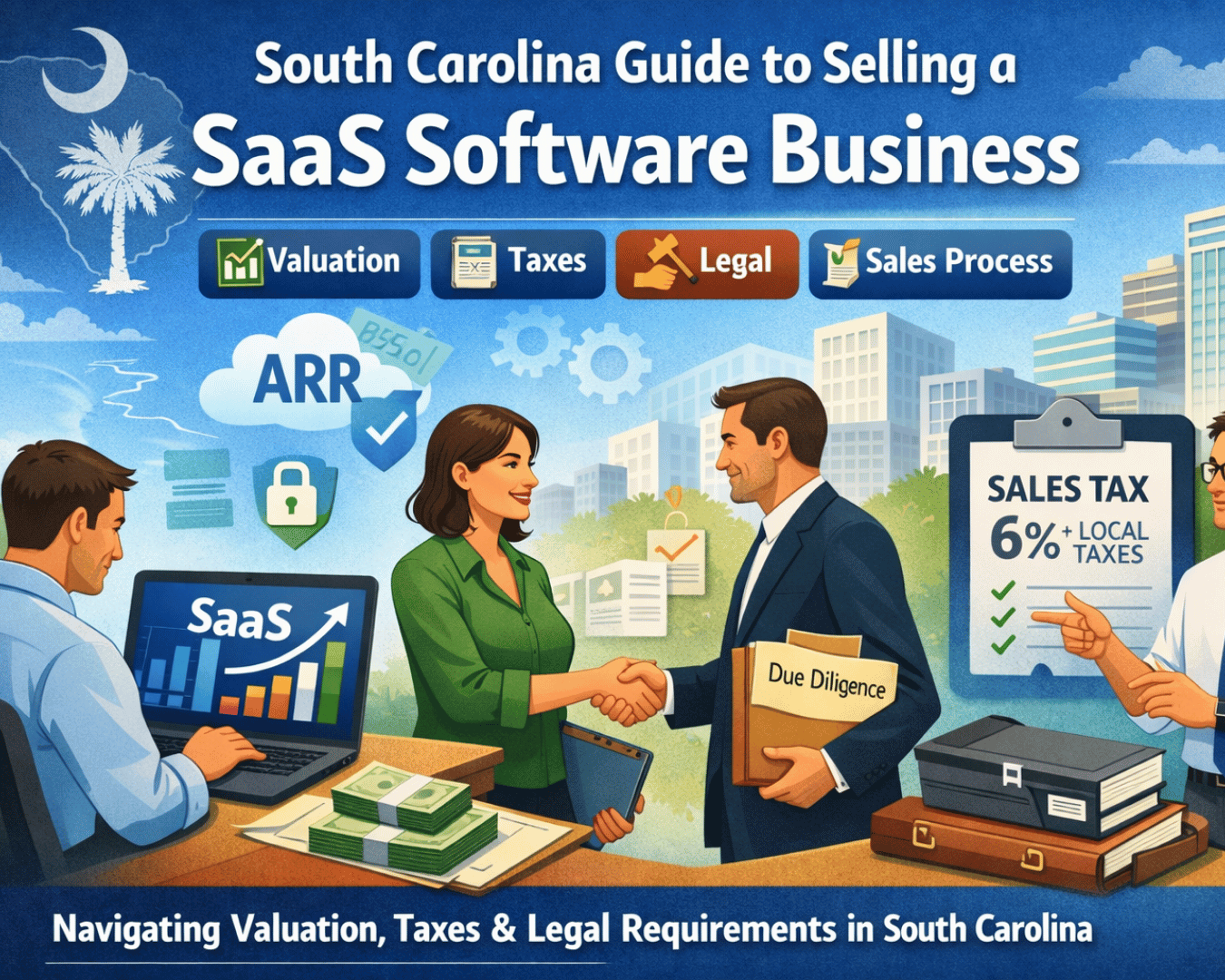







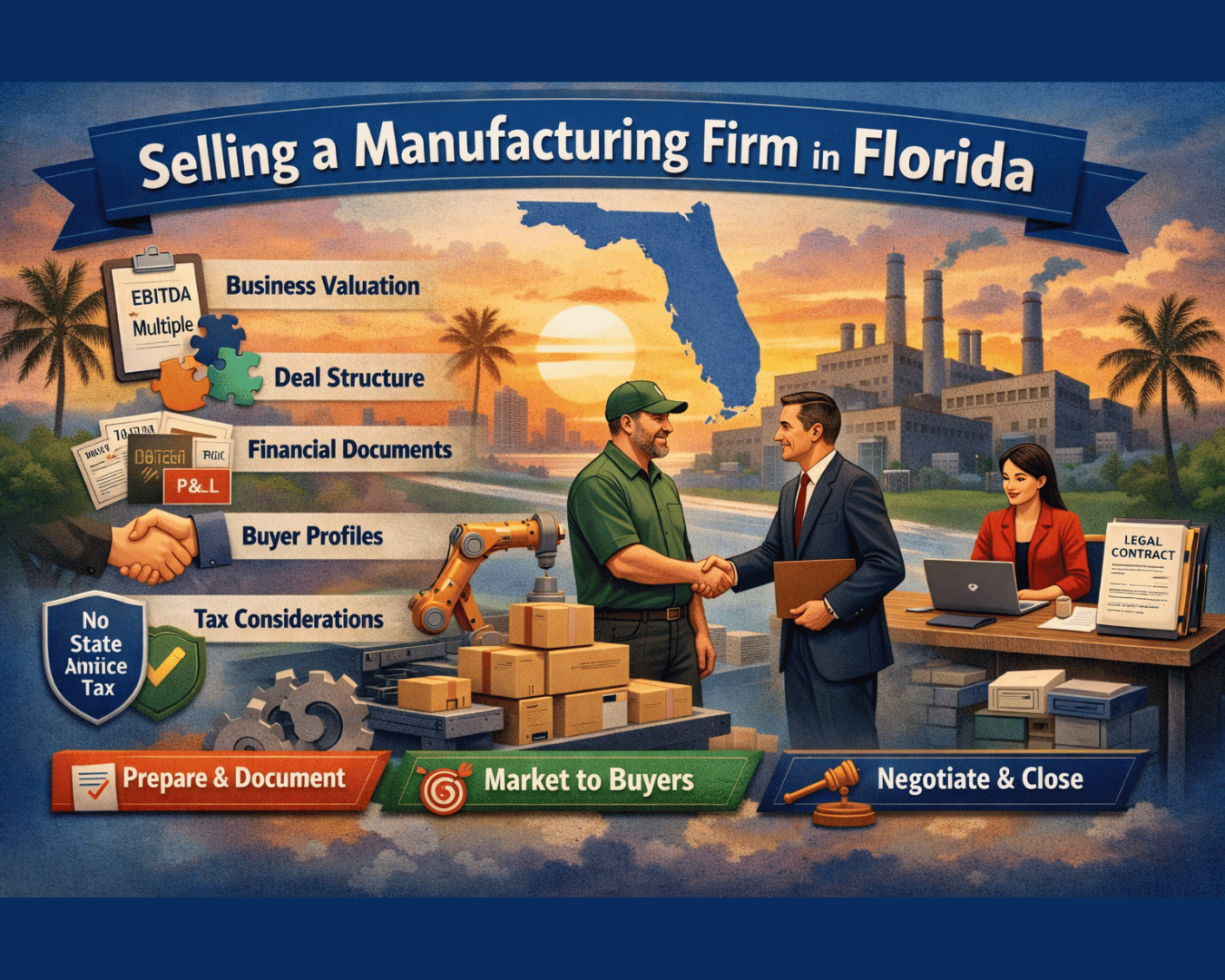
%20in%20a%20%2420M%20Sale..png)
%20vs.%20Conventional%20Loans%20for%20business%20acquisition.png)








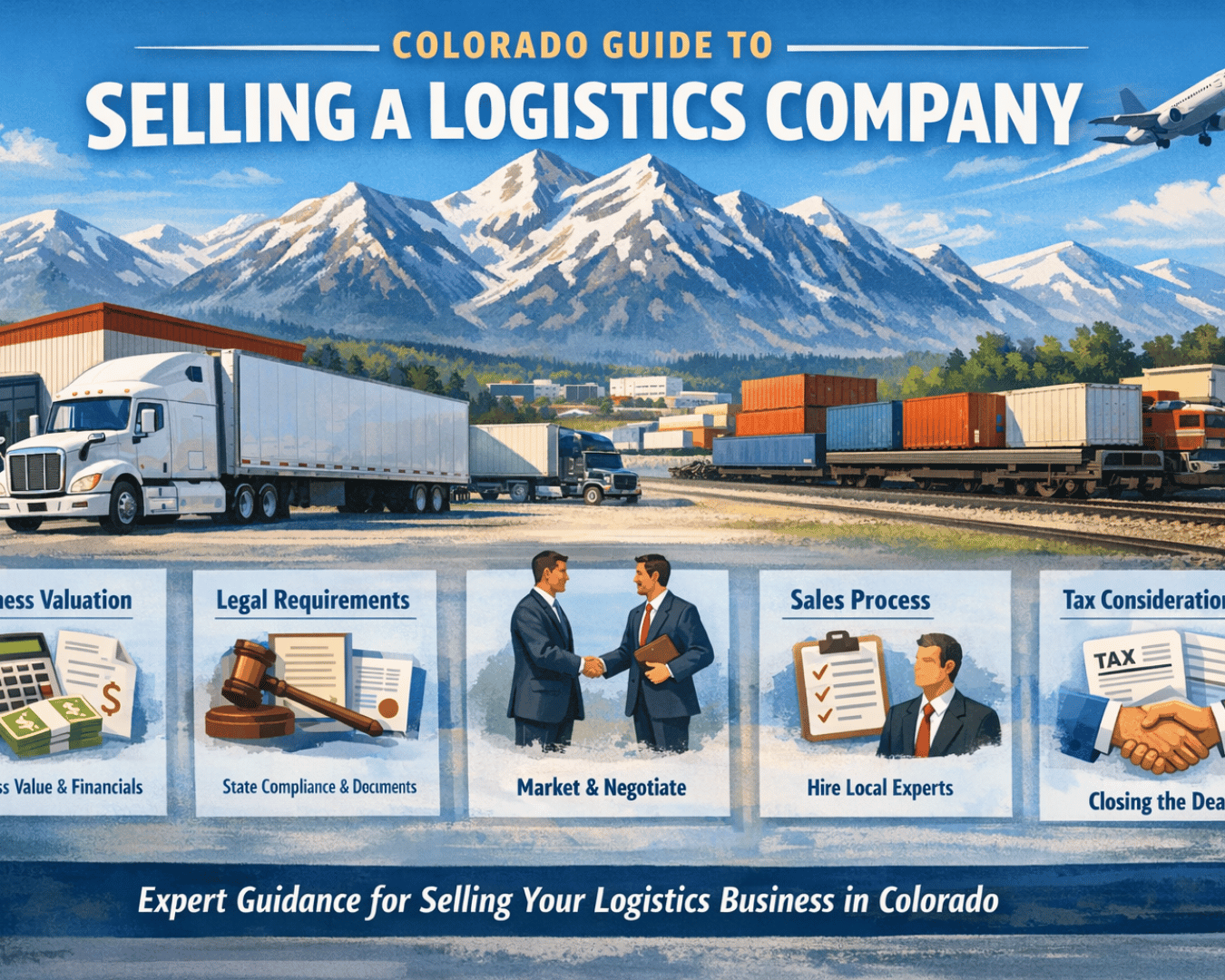













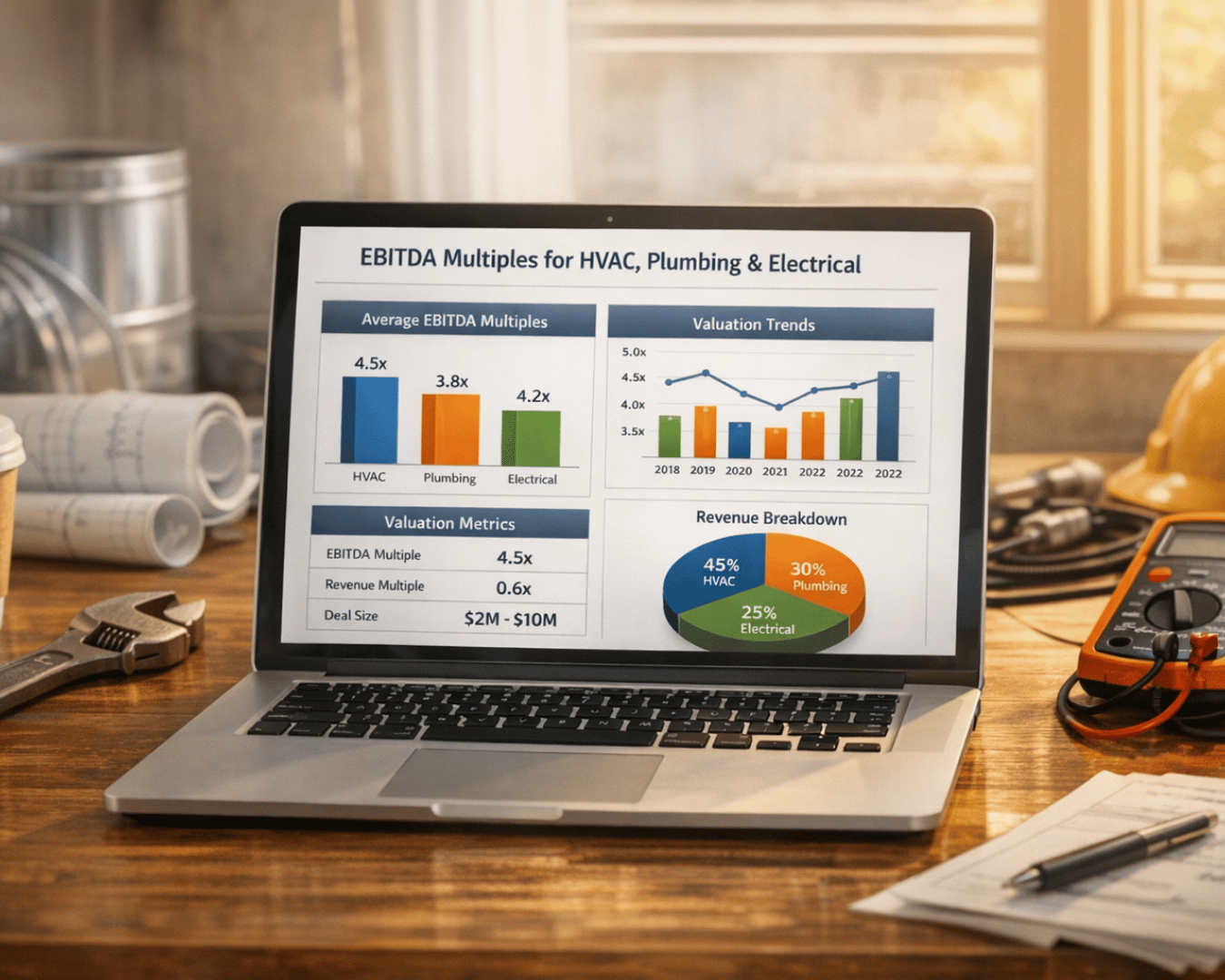
.png)


.png)
.png)

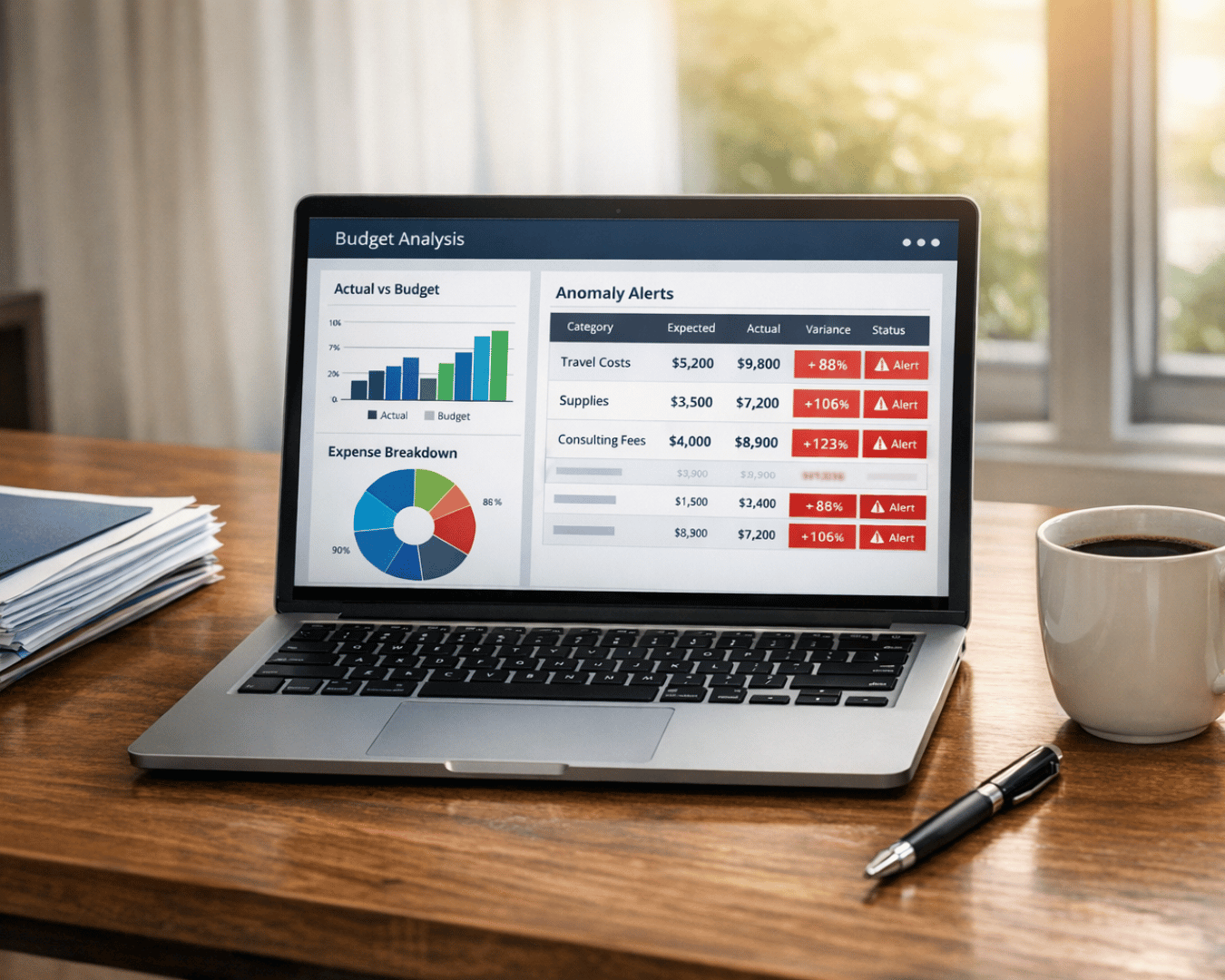










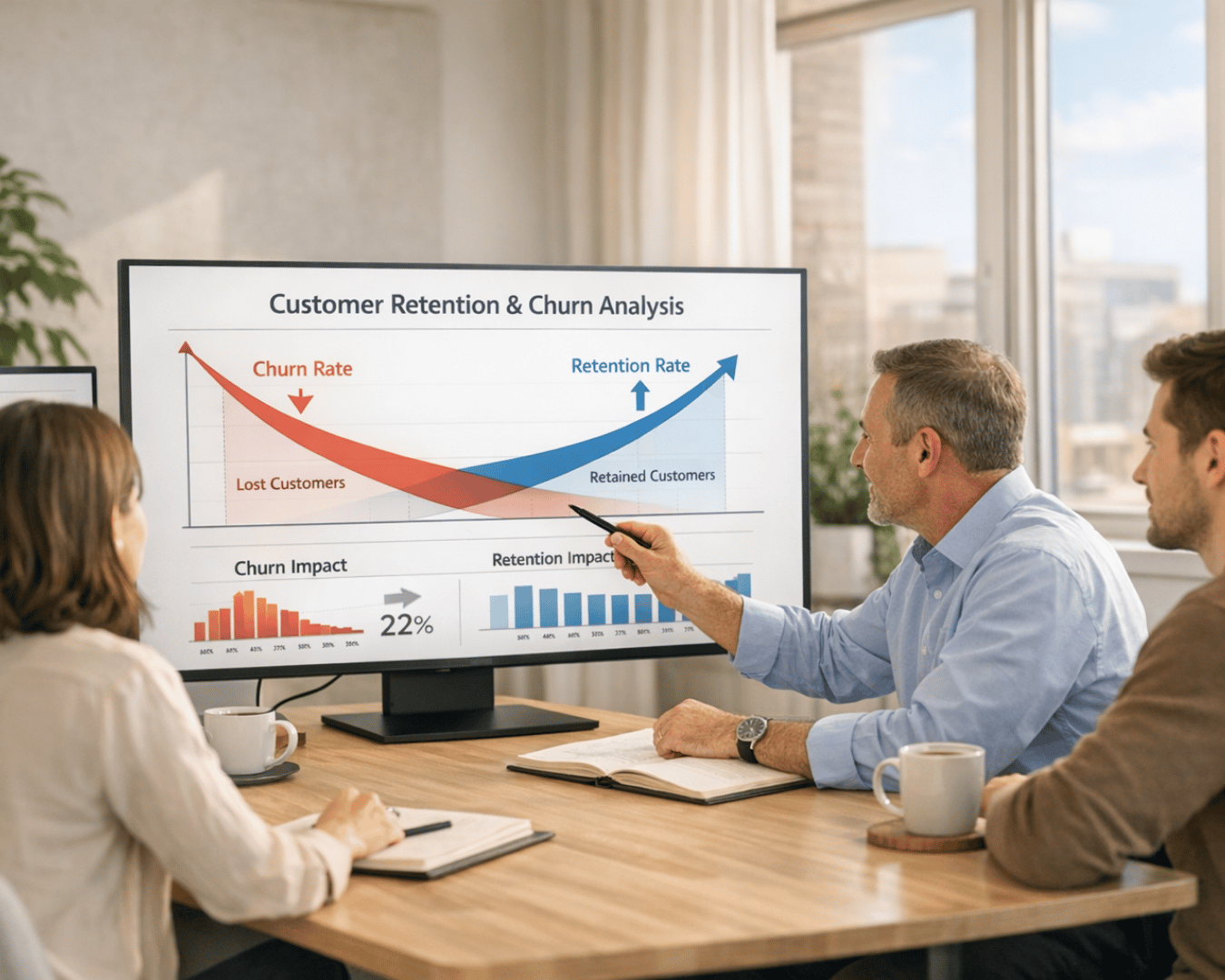
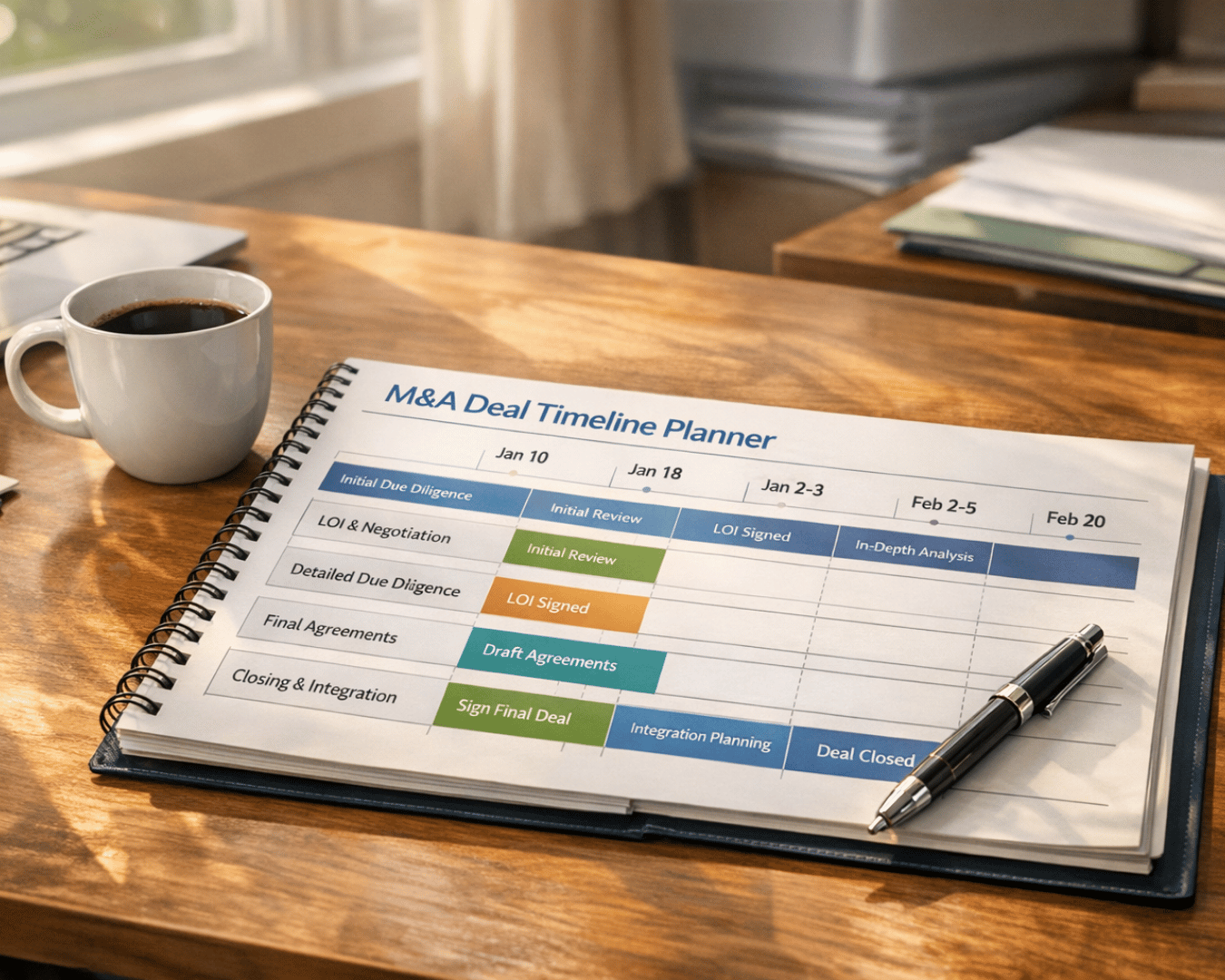




















.png)
